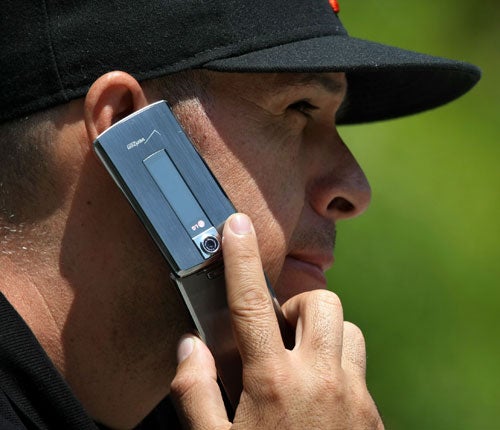Cyberclinic: Why is my battery reading so inaccurate?

Your support helps us to tell the story
From reproductive rights to climate change to Big Tech, The Independent is on the ground when the story is developing. Whether it's investigating the financials of Elon Musk's pro-Trump PAC or producing our latest documentary, 'The A Word', which shines a light on the American women fighting for reproductive rights, we know how important it is to parse out the facts from the messaging.
At such a critical moment in US history, we need reporters on the ground. Your donation allows us to keep sending journalists to speak to both sides of the story.
The Independent is trusted by Americans across the entire political spectrum. And unlike many other quality news outlets, we choose not to lock Americans out of our reporting and analysis with paywalls. We believe quality journalism should be available to everyone, paid for by those who can afford it.
Your support makes all the difference.The most used word on the British mobile-phone network is a quizzical and repeated, "Hello?" Unimaginably important mobile-phone conversations are cut off in their prime, just as they reach a critical stage in the exchange of information. All you know is that the person to whom you were once talking is inaudible; you don't know whether it's the fault of your network, your phone or theirs – and, nor do they.
A couple of technology bloggers have been complaining recently that both the signal power and battery-life meters on many mobiles don't give us accurate information. A former employee of a major phone manufacturer revealed that on a full, three-bar battery meter, you might only have half your battery life left – at which point it ticks down – 30 per cent at two bars, 15 per cent at one bar. And this could be customised by the network to make things better or worse.
Some would rather have a linear battery meter that gave them precise information. Others, such as reader Ian Kemmish, don't see what the fuss is about. "There are excellent user interface reasons for this," he posted on our blog. "If you are running out of a critical resource, then you want enhanced resolution at the lower end of the scale."
But room is no longer so tight on new, larger screens, and surely, giving us a simple percentage surely wouldn't be so difficult? Or do manufacturers want us to believe their batteries stay stronger for longer? Signal bars are more complex, but could still be accused of exaggerating. They combine two readings: the raw signal strength from the mast, and the signal-to-noise ratio; the latter is more significant, but it seems more weight is given to the former. So effectively, a full complement of signal bars means your phone can "hear" the mast, but the mast can't necessarily hear your phone.
Of course, we've come to accept that mobiles aren't always the most reliable gadgets in the world. But wouldn't it be better if they told us how things are, rather than how we wish they were?
Diagnosis required
Email any technology gripes to cyberclinic@independent.co.uk or join the discussions at www.independent.co.uk/cyberclinic . Currently under discussion: how have phone companies got away with introducing per-minute billing?
Join our commenting forum
Join thought-provoking conversations, follow other Independent readers and see their replies
Comments